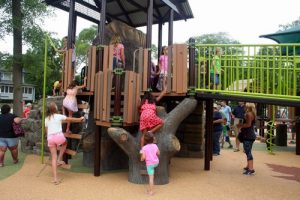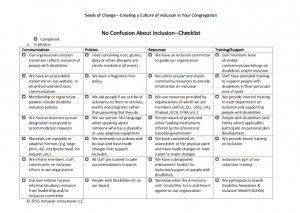This weekend marks Memorial Day in the United States. Decoration Day as it used to be called. We are to remember our fallen service men and women. Typically there are parades, picnics and trips to the cemetery.
Judaism has a lot to say about memory. A lot to say about making war and peace. On this Memorial Day Weekend, I thought it might be appropriate to explore some of it.
First, there are wars. Nobody wants to go to war. It seems to be inevitable. And there are some that are even justifiable. (gasp.) I once wrote a paper published by Brandeis when I was in college justifying the incursion into Lebanon (gasp again).
Yet we send our young men and young women into harms way. Sometimes without thinking about the consequences deeply enough. Serving in our armed forces is hard work. And comes with real consequences. Dire consequences.
I am grateful to the men and women who have served in the armed forces so that we can enjoy the freedoms we hold so dear. That we are entitled to life, liberty and the pursuit of happiness. That we cherish the freedoms, guaranteed in the Bill of Rights, freedom of religion, freedom of the press, freedom to assemble, even freedom to bear arms.
Those freedoms, like the Torah itself I taught about on Shabbat of Memorial Day Weekend are designed to bring peace, not war. Our founding fathers, George Washington in particular, quoted Isaiah extensively, praying for a time where every one could sit under their vine and fig tree and none would make them afraid as he stated in his letter to the Jewish community of Newport, RI:
“It is now no more that toleration is spoken of as if it were the indulgence of one class of people that another enjoyed the exercise of their inherent natural rights, for, happily, the Government of the United States, which gives to bigotry no sanction, to persecution no assistance, requires only that they who live under its protection should demean themselves as good citizens in giving it on all occasions their effectual support…
May the children of the stock of Abraham who dwell in this land continue to merit and enjoy the good will of the other inhabitants—while every one shall sit in safety under his own vine and fig tree and there shall be none to make him afraid.”
https://www.tourosynagogue.org/history-learning/gw-letter
Fear, all too often leads to the opposite of peace. It can lead to war. On this Memorial Day Weekend, I pray for peace. I actively work for peace. I “seek peace and pursue it.” In my home and in my land. In my city and in another place.
This weekend, I taught a class on Elu Devarim, these are the obligations without measure whose reward too is without measure. One of them is to make peace where there is strife. That is what we studied Shabbat afternoon. As happens with Jews while studying Talmud there was a fair amount of debate, even arguing. Even US Constitutional Law.
Here are the texts we used:
“He who establishes peace between man and his fellow, between husband and wife, between two cities, two nations, two families or two governments…no harm should come to him” (Mekhilta Bahodesh 12)
“All that is written in the Torah was written for the sake of peace” (Tanhuma Shofetim 18)
“By three things the world is preserved, by justice, by truth, and by peace, and these three are one: if justice has been accomplished, so has truth, and so has peace” (JT Ta’anit 4:2)
“All falsehood is forbidden, but it is permissible to utter a falsehood for the purpose of making peace between a man and his fellow” (Derekh Erez Zuta, loc. cit.).
We also looked at a piece written by Rabbi Amy Eilberg, the first Conservative Movement woman rabbi who was a chaplain in Minnesota and then went on to do a lot of work in restorative justice. She wrote an important book, From Enemy to Friend, about peacemaking and a blog post of the Times of Israel, https://blogs.timesofisrael.com/10-ways-to-practice-peace-on-the-9th-of-adar/
“The Rabbis observed that most of the legislation in the Torah is case law. If we find a lost object, we are to return it to its owner. If we own property, we must take precautions to ensure the safety of those who enter it. If we see our enemy’s animal struggling under its load, we are to help him. When Shabbat or a holy day comes, we are to observe it.
Notably, two commandments are explicitly articulated not as responses to a particular situation, but as imperatives to be followed—indeed, pursued—at all times. We are not only to act in accordance with these imperatives passively when the occasion arises. We are to actively seek out opportunities to engage in them. The two cases are the pursuit of justice, of which it is said, “Justice, justice shall you pursue” (Deut. 16:20) and the pursuit of peace, of which it is said, “Seek peace and pursue it” (Ps. 34:15).
The Rabbis ask why the verse employs two verbs (“seek” and “pursue”) when one would have sufficed. Their answer: “Seek it in your place and pursue it in other places.” The two verbs, they suggest, convey different elements of the command: seek peace when conflict comes to your doorstep, but do not stop there. You must energetically pursue opportunities to practice peace, near and far, for it is the work of God.
This rabbinic teaching insists that we must reach beyond our homes and comfort zones in the pursuit of peace. What is called for is not passive or occasional practice, but a constant, relentless seeking after opportunities to respond to the command of peacemaking.”
Perhaps what I should have also taught were the rules for making war as outlined in Deuteronomy:
“When you go forth to battle against your enemies and you see horses and chariots and a people greater than you, you shall not be afraid of them for the Lord, your G-d is with you, who brought you out of the land of Egypt. And it will be that when you draw near to war, that the priest will approach and speak to the people and will say to them, “Hear O Israel, as you draw near this day to battle against your enemies, do not let your heart faint (go down). Do not be afraid not be alarmed, nor be fearful before them. For the Lord your G-d goes with you, to fight for you against your enemies, to save you. And the officers shall speak to the people saying, “Who is the man that has built a new house but has not dedicated it, let him go and return to his house lest he die in war and another man dedicate it. And who is the man that has planted a vineyard and has not used the fruit yet, let him go and return to his house, lest he die in war and another man use the fruit. And which man is there that has betrothed a woman and has not taken her? Let him go and return to his house, lest he die in war and another man takes her. And the officers shall speak more to the people saying, Who is the man who is fearful and faint-hearted, let his go and return to his house, lest his brother’s heart melts as his heart….when you come hear to a city to fight against it, proclaim peace to it…however, when you besiege a city a long time, you shall not destroy the trees by wielding an axe against them. You may eat of them, but you may not cut them down. (Deuteronomy 20)
So I will sit on my deck, wearing my Memorial Day t-shirt, purchased years ago for a Memorial Day parade. It reads, “Make America Beautiful. Plant a tree. Be kind to nature. Conserve energy. Volunteer.”
For those who are hurting this Memorial Day, for those who have lost a loved one to the ravages of war, I offer this from Peter, Paul and Mary:
You have asked me why the days fly by so quickly
And why each one feels no different from the last?
And you say that you are fearful for the future
And you have grown suspicious of the past
And you wonder if the dreams we shared together
Have abandoned us or we abandoned them
And you cast about and try to find new meaning
So that you can feel that closeness once again
Carry on my sweet survivor
Carry on my lonely friend
Don’t give up on the dream and don’t you let it end
Carry on my sweet survivor
Though you know that something’s gone
For everything that matters, carry on
You remember when you felt each person mattered
When we all had to care for all was lost
But now you see believers turn to cynics
And you wonder was the struggle worth the cost
Then you see someone too young to know the difference
And a veil of isolation in their eyes
And inside you know you’ve got to leave them something
Or the hope for something better slowly dies
On this Memorial Day, I revert back to one of my favorite readings in Gates of Prayer, written by Archibald MacLeish:
The young, dead soldiers do not speak
Nevertheless they are heard in the still houses: who has not heard them?
They have a silence that speaks for them at night and when the clock counts.
They say, We were young. We have died. Remember us.
They say, We have done what we could but until it is finished it is not done.
They say, We have given our lives but until it is finished no one can know what our lives gave.
They say, Our deaths are not ours: they are yours: they will mean what you make them.
They say, Whether our lives and our deaths were for peace and a new hope or for nothing we cannot say: it is you who must say this.
They say, We leave you our deaths: give them their meaning: give them an end to the war and a true peace: give them a victory that ends the war and a peace afterwards: give them their meaning.
We were young, they say. We have died. Remember us.
Today, we remember.

